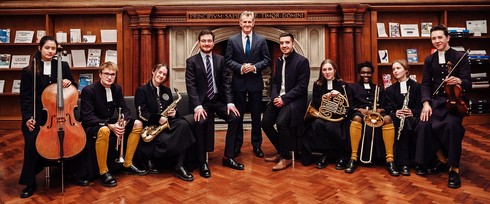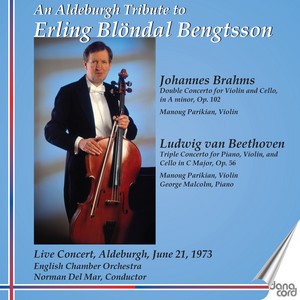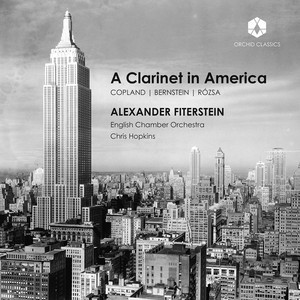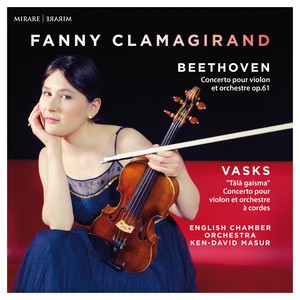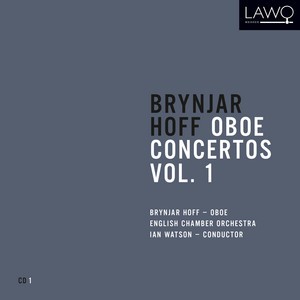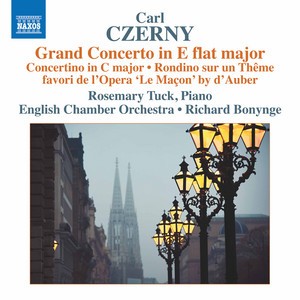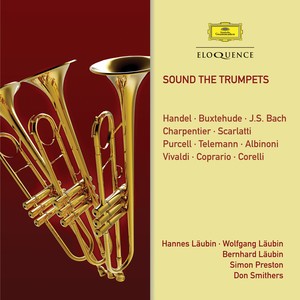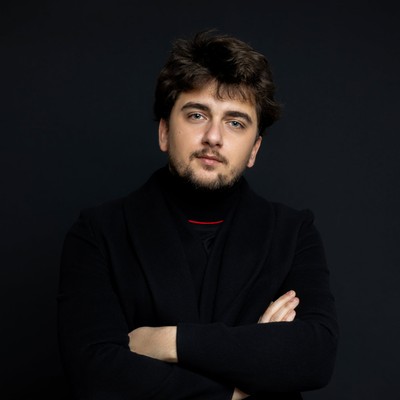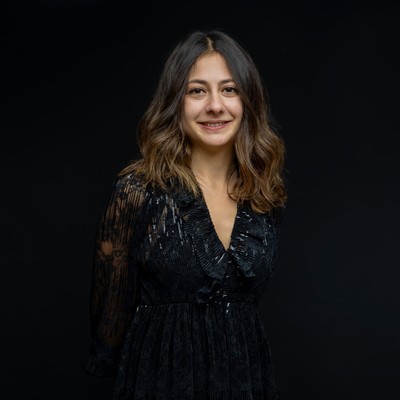About
The English Chamber Orchestra
Patron: HRH King Charles III
Leader: Stephanie Gonley
The English Chamber Orchestra is the most recorded chamber orchestra in the world, its discography containing 860 recordings of over 1,500 works by more than 400 composers.
The ECO has also performed in more countries than any other orchestra, and played with many of the world’s greatest musicians. The American radio network CPRN has selected ECO as one of the world’s greatest ‘living’ orchestras. The illustrious history of the orchestra features many major musical figures. Benjamin Britten was the orchestra’s first Patron and a significant musical influence.
The ECO’s long relationship with Daniel Barenboim led to an acclaimed complete cycle of Mozart piano concertos as live performances and recordings, followed later by two further recordings of the complete cycle, with Murray Perahia and Mitsuko Uchida.
Recent tours have included the USA, Bermuda, China, Finland, France, Greece, Slovenia and Austria (culminating in a concert at Vienna’s Musikverein) as well as concerts across the UK and at London’s Royal Festival Hall, Queen Elizabeth Hall, Kings Place and Cadogan Hall.
The Orchestra has been chosen to record many successful film soundtracks including Dario Marianelli’s prizewinning scores for Atonement and Pride and Prejudice, and several James Bond soundtracks, and has taken part in a variety of other film and television projects.
The ECO is proud of its outreach programme, Close Encounters, which is run by the musicians in the orchestra and takes music into many settings within communities and schools around the UK and abroad.
History
The English Chamber Orchestra has its roots in the Goldsbrough Orchestra, founded in 1948; its name changed in 1960 and since then it has remained under the artistic direction of a member of the original group, Quintin Ballardie.
The ECO is one of the world’s leading chamber orchestras, having performed in more countries than any other orchestra, recorded over 1,500 works and played with the world’s greatest musicians in its five decades of history. Over the years its soloists and conductors have included Vladimir Ashkenazy, Janet Baker, Daniel Barenboim, Benjamin Britten, Colin Davis, Placido Domingo, Kiri te Kanawa, Raphael Kubelik, Raymond Leppard, Yehuhi Menuhin, David Oistrakh, Luciano Pavarotti, Murray Perahia, Itzhak Perlman, Andre Previn, Karl Richter, Mstislav Rostropovich, Georg Solti, Isaac Stern, Mitsuko Uchida, Maxim Vengerov and Pinchas Zukerman.
Since 1977 the ECO is delighted to have had as its Patron HRH The Prince of Wales and the Orchestra has performed at many royal events for him and his family, including the late Queen Mother’s 90th birthday celebrations (1990), The Prince of Wales’ 50th birthday Gala Concert (1998) and also the first concert ever to be broadcast from Buckingham Palace.
The year 1967 was a highlight of the ECO’s first decade. The Orchestra and Benjamin Britten inaugurated London’s Queen Elizabeth Hall and Snape Maltings, both in the presence of HM The Queen (later ECO concert hall inaugurations have ranged from Finland to Japan and Kazakhstan). Also in 1967 the ECO started recording Mozart with Daniel Barenboim, participated in the Montreal Expo 67 and in the BBC’s first colour television transmission of a concert as well as the opening concert in the European Broadcasting Union’s first international concert series.
Benjamin Britten, the Orchestra’s very first Patron, was a tremendous musical influence on the ECO until his death in 1976. The ECO also enjoyed a long relationship with Daniel Barenboim, one of the highlights of which was the performance and recording (for EMI) of the complete cycle of Mozart Piano Concertos. The 1980s were marked by the appointment of Jeffrey Tate as the ECO’s first Principal Conductor and by recordings of the complete Mozart Symphonies and late Haydn symphonies (with Tate, for EMI) along with two further celebrated cycles of the complete Mozart Piano Concertos (for CBS with Murray Perahia and for Phillips with Mitsuko Uchida and Tate). The 1990s included an epic series of 21 concerts at London’s Barbican Centre in 1991 for the ‘Mozart 200’ celebration, containing (in chronological order) Mozart’s major works from each year between 1770 and 1791.
Since the advent of the new century the ECO has toured around the world with artists such as Maxim Vengerov, Radu Lupu, Itzhak Perlman, Hilary Hahn, Sarah Chang and Pinchas Zukerman and it still attracts the calibre of guest artists which few other chamber orchestras can match. Unique collaborations have also been forged with Ralf Gothoni and Paul Watkins, the Orchestra’s Principal Conductors during the last decade, and with the late Sir Colin Davis, the Orchestra’s Conductor Emeritus until his death in 2012. The Orchestra also has a strong tradition of leadership within its ranks; Spanish violinist Jose-Luis Garcia was Leader of the ECO for 25 years, succeeded by the present Leader Stephanie Gonley in 1997.
The ECO aims to celebrate and build upon its tradition of maintaining the highest international musical standards, nurturing new talent and focussing on the ‘best of British’ music and musicianship, as well as being the chamber orchestra of choice for many of the world’s greatest soloists and, via its many and varied foreign tours, a significant invisible export for the United Kingdom. Its first world tour was in 1969 with Daniel Barenboim, Pinchas Zukerman and Jacqueline du Pre, followed in 1973 by a second world tour with the same soloists plus Andrew Davis; in 1968 it had made debut tours in both SouthAmerica and the USA, while its first coast-to-coast tour of the USA was in 1979 with Vladimir Ashkenazy.
In 1998 the ECO was the only orchestra honoured with invitations to celebrate the 50th Anniversary of Independence in Sri Lanka and the inauguration of Kazakhstan’s new capital city, Astana. Recent tours have included Azerbaijan, Russia, Qatar, Dubai, China, as well as countries across Europe, whilst future plans include a debut visit to Siberia and return visits to Baku, Doha, the USA and the Far East.
For many years the ECO was resident orchestra at the Aldeburgh Festival, while later residencies included Aix-en-Provence opera festival. The Orchestra’s 21 annual Mediterranean and Caribbean music festivals at sea continue to feature many of its internationally renowned soloist friends. From 2008 – 2013 the ECO was resident orchestra at the Grange Park Opera Festival.
The ECO made its first LP in 1961 and in 2011 was confirmed as the most recorded chamber orchestra in the world, having recorded over 1500 individual works. Some of the world’s greatest voices to have recorded with the ECO include Kiri Te Kanawa, Janet Baker, Jessye Norman, Montserrat Caballe, Renee Fleming, Luciano Pavarotti, Jose Carreras and Placido Domingo. The Orchestra has been chosen to record many notable film scores including John Barry’s Bond movies and Dario Marionelli’s recent soundtracks for Pride and Prejudice and Atonement, and has also featured in many of Tony Palmer’s and Christopher Nupen’s films about music and musicians.
The ECO is proud of its outreach programme, Close Encounters, which takes music and educational projects into communities and schools around the UK and overseas, including South Africa, Bermuda and Qatar.
In its recordings, performances and tours the ECO continues to build on decades of remarkable music-making, and for this we are grateful to our players, soloists, conductors and all those who have supported us financially and in so many other ways over the decades. Bravo and thank you to all those who are and have been associated with the ECO!
Britten and the ECO
Benjamin Britten and The English Chamber Orchestra
Just over fifty years ago, a composer wanted an orchestra and an orchestra wanted regular engagements. In 1947 Benjamin Britten had formed a small ensemble for English Opera Group productions and had then expanded it into an Aldeburgh Festival Orchestra for years when there was no guest orchestra. But at the end of the 1950s its leader joined the long list of the composer’s associates who fell from grace and was replaced by Emanuel Hurwitz. He was then leading both the Melos Ensemble and the Goldsbrough Orchestra and when the latter was reconstituted and renamed “THE ENGLISH CHAMBER ORCHESTRA”, a very successful partnership ensued with the ECO the resident orchestra at every Aldeburgh Festival from 1961-1982. With Britten at the helm they inaugurated Snape Maltings Concert Hall in 1967 (and again in 1970 after fire devastated the original), gave the opening concert at London’s Queen Elizabeth Hall, were guests at the King’s Lynn Festival and resident at Long Melford’s Bach Weekends. The very last concert that Britten conducted was with the ECO at Snape Maltings on 19 June 1972.
The English Chamber Orchestra’s first recording of Britten’s music was the premiere account of “Noye’s Fludde” in 1961 when the composer delegated the direction to Norman Del Mar. Meredith Davies subsequently conducted a video recording of an edition of “The Beggar’s Opera”, though Britten himself conducted the ECO in a pirated broadcast from the 1963 Edinburgh Festival. For Decca they then went on to make the first studio recordings of “Albert Herring”, the Cello Symphony and “Owen Wingrave”. Britten would have added “Death in Venice” and “Phaedra” but his deteriorating health meant that Steuart Bedford deputized. The English Opera Group players who first performed and recorded the three Church Parables were also booked via the ECO. Two 1967 premieres, “Hankin Booby” and “The Building of the House” were issued on CD in 1999. The former was subsequently incorporated into the “Suite on English Folk Tunes” that was first performed by the ECO and Steuart Bedford in 1975. Between 1966 and 1971 Britten conducted the orchestra for Decca recordings of some of his back catalogue: “Les Illuminations”, the Frank Bridge Variations, the Simple Symphony, “The Rape of Lucretia”, the Violin Concerto, the Piano Concerto and the Prelude & Fugue. Live performances of the Nocturne and a Mahler arrangement (“What the wild flowers tell me”) also eventually appeared on CD and there are unpublished ECO accounts of the Serenade, “The Turn of the Screw”, the Scottish Ballad and a Holst arrangement (“Swansea Town”) that can all be heard in off-air recordings at the British Library.
The English Chamber Orchestra’s premiere recordings of Britten’s music did not cease with his death in 1976. The following year Norman Del Mar conducted the orchestral version of the Op.1 Sinfonietta. Then Heather Harper gave the first performance of the Quatre Chansons Françaises (a teenage composition) in a BBC studio recording later published on CD. Philip Brunelle conducted the premiere recording of “The Company of Heaven” (incidental music from 1937) and Collins Classics engaged Steuart Bedford for an extensive Britten series from 1989-98, during which the ECO made the first recordings of “Johnson over Jordan” (more incidental music from 1939) and the original version of the Piano Concerto. Thea King set down the first attempted realization of the sketches for a Clarinet Concerto in 1992. There were also accounts of the Rossini arrangements (“Soirées musicales” and “Matinées musicales”) that Britten never recorded himself under Alexander Gibson in 1982.
But Benjamin Britten’s performing repertoire extended far beyond his own music, particularly in the period when he had found a sympathetic ensemble in the ECO. Decca recorded albums of Percy Grainger and of English music for strings and Britten would have conducted a second volume of each had his health permitted. In 1970-72 they set down Purcell’s “The Fairy Queen”, Elgar’s “The Dream of Gerontius” and Schumann’s “Scenes from Faust”, while the “St.John Passion” was added to a set of Brandenburg Concertos already recorded. There were four Mozart symphonies and two piano concertos, plus Schubert’s “Unfinished”, and there would have been more had his heart surgery not put a stop to his performing career. A posthumous legal dispute between B.B.C. Audio International and Decca was eventually settled by a compromise that has allowed the publication of numerous live recordings since 1999, though a few pirate issues had already reached the market. Besides such Aldeburgh premieres as Shostakovich’s Fourteenth Symphony and Bliss’ Cello Concerto, predictable enthusiasms like Purcell, Bridge, Holst and Delius, and a good deal more Bach and Mozart, there were overtures by Beethoven , Weber and Mendelssohn and pieces by Haydn, Schumann, Tchaikovsky, Mahler, Debussy and Falla. Further ECO performances from 1962-72 still unpublished but surviving in archives include Chopin’s Second Piano Concerto (with Fou Ts’ong), Mahler’s Kindertotenlieder (John Shirley-Quirk), Prokofiev’s “Classical” Symphony and Lutosławski’s “Dance Preludes”, as well as Haydn’s “The Creation” and Bach’s “Christmas Oratorio”, plus a dozen or so cantatas.
Most of Decca’s ECO / Britten recordings have been continuously available ever since their original LP release. They were transferred to CD in 1986-93 and have been repackaged to mark the centenary. In 2008 several televised operas (including “Idomeneo”) were published as Decca DVDs. Clips of the composer and orchestra in rehearsal were captured on film by Tony Palmer and, thanks to ICA Classics, they can now also be seen together in concerts from Croydon in 1964 and Snape Maltings in 1968 & 1970 on recently released DVDs.
Philip Stuart
Freelance discographer
Reviews
— By The Guardian, Kings Place, London, May 2012
— By Andrew Larkin, January 2020
— by Angus McPherson, March 2020
Videos
CONTACT PERSONS
LocksBridge Artist Management represents the English Chamber Orchestra in Turkey, Southeast Europe and MENA region.

